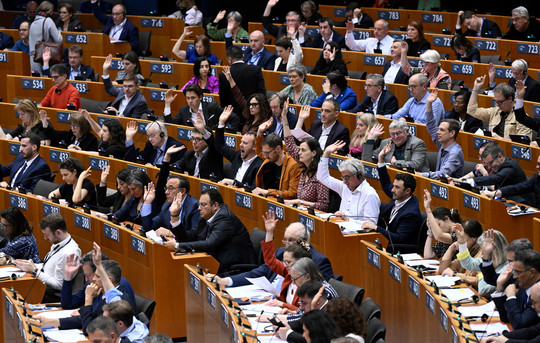“The way that some media represent women involved in politics seems to be more about their gender than the policies for which they stand “ explains Pamela Morinière, IFJ’s Gender expert. “Too many news reports featuring women politicians will concentrate on issues that have nothing to do with politics such as their looks, family status, sexual orientation, or their emotional behaviour.
These types of reports impact voters’ perceptions of women politicians by giving the impression that women are not fit for politics. The reality is quite different”.
Women occupy around 30% of parliamentary seats in Europe but represent only 18% of politicians who appear in the news, according to the Global Media Monitoring Project 2020, a five-yearly global report that analyses the place women hold in the news across the world.
The guidelines, which consist in a series of ‘does and don’ts’ guide journalists through the main pitfalls they should avoid when covering politics.
The choice of images, languages,family status, leadership style, emotions are some of the aspects where journalism can easily fall into gender-biased reporting.
One of the key elements to avoid gender bias, the guidelines say, is to apply the rule of reversibility, and change the subject of the news story from a woman to a man to check whether the story can be told in the same manner.
“Journalistic ethical codes demand that reporters do not discriminate on the basis of gender and that they respect the dignity of news subjects”, explains Anthony Bellanger, IFJ’s General Secretary. “Our ethical charter, which has been reproduced in numerous newsrooms, sets out these important principles which should guide journalists and editors in times of elections when making decisions on what to cover, whom to interview and how to frame the story. “
The guidelines are the result of an IFJ-led project “Rewriting the story” which aims at strengthening journalists’ students, journalists and media managers' understanding of the importance of providing unbiased reporting so as to help voters make informed decisions. Although launched ahead of EU parliament elections, the guidelines are relevant to journalists and newsrooms covering any of the political campaigns.
Download the SHORT version of the Guidelines in English, Spanish, French, Croatian
Donwload the LONG version of the Guidelines in English, Spanish, French, Croatian

